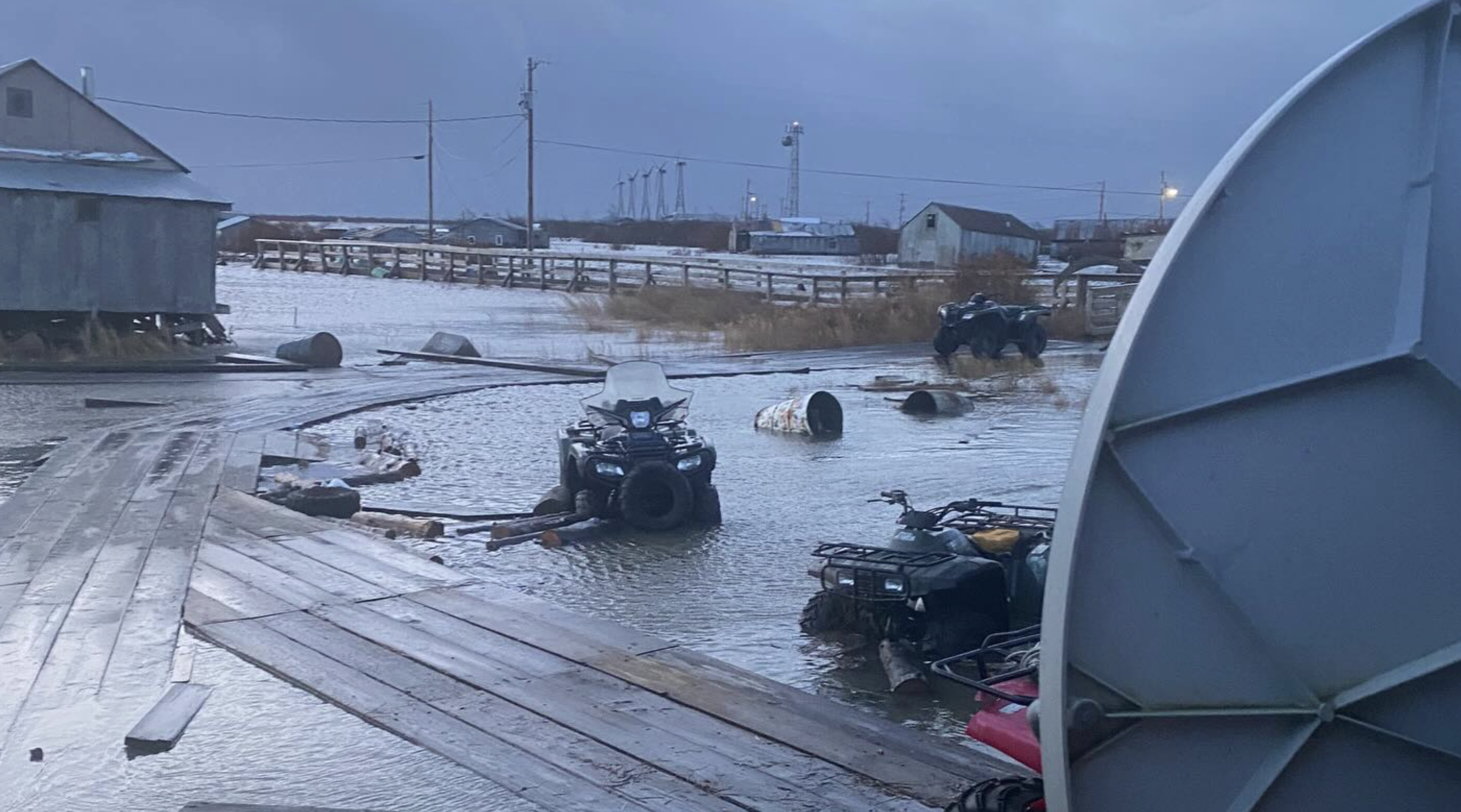
- Details
- By Corinne Smith, Alaska Beacon
As morning light hit flooded communities devastated by the remnants of Typhoon Halong on Sunday, local residents snapped photos of the storm damage across western Alaska communities.
This article was originally published in the Alaska Beacon.
High storm surge and hurricane force winds, in some areas up to 107 mph, slammed the western coastal region – particularly Kuskokwim Delta communities – and villages along the Bering Sea, only accessible by road and small plane.
“Several houses floated miles inland – some with people still inside. There are a few houses still intact on higher ground on one side of the village. Everyone else has lost their homes or are facing extensive damage,” Jacqui Lang of Kipnuk wrote on Facebook.
Residents posted photos and updates on Facebook, sharing prayers and connecting with family and friends. Some had minimal battery power, as utilities were knocked out by the storm.
Some filmed U.S. Coast Guard helicopters rescuing residents from homes floating away in nearby waters – 51 residents were rescued from the hardest-hit communities of Kwigillingok and Kipnuk on Sunday and Monday.
“WE MADE IT OUT OF KIPNUK! Everyone’s good and at the school. The Coast Guard just picked us up and just landed into Bethel,” wrote Kristy Fox of Kipnuk, along with videos of helicopter rescues. “Kipnuk isn’t Kipnuk anymore. I pray they evacuate safely.”
The storm killed one woman in Kwigillingok, left two missing and displaced over 1,000 people.
Hundreds took shelter in local schools as vast flooding and winds had damaged homes, structures, boats roads, and boardwalks.
Damage is still being assessed. Emergency crews were deployed to assist with repairing damaged runways, power and sewer infrastructure and begin evacuating and airlifting residents to shelter in Bethel as of Tuesday.
Click on photos to see gallery.
https://nativenewsonline.net/environment/in-photos-residents-of-western-alaska-share-storm-damage-of-ex-typhoon-halong#sigProIda4770d0d51
Help us defend tribal sovereignty.
At Native News Online, our mission is rooted in telling the stories that strengthen sovereignty and uplift Indigenous voices — not just at year’s end, but every single day.
Because of your generosity last year, we were able to keep our reporters on the ground in tribal communities, at national gatherings and in the halls of Congress — covering the issues that matter most to Indian Country: sovereignty, culture, education, health and economic opportunity.
That support sustained us through a tough year in 2025. Now, as we look to the year ahead, we need your help right now to ensure warrior journalism remains strong — reporting that defends tribal sovereignty, amplifies Native truth, and holds power accountable.
 The stakes couldn't be higher. Your support keeps Native voices heard, Native stories told and Native sovereignty defended.
The stakes couldn't be higher. Your support keeps Native voices heard, Native stories told and Native sovereignty defended.
Stand with Warrior Journalism today.
Levi Rickert (Potawatomi), Editor & Publisher

